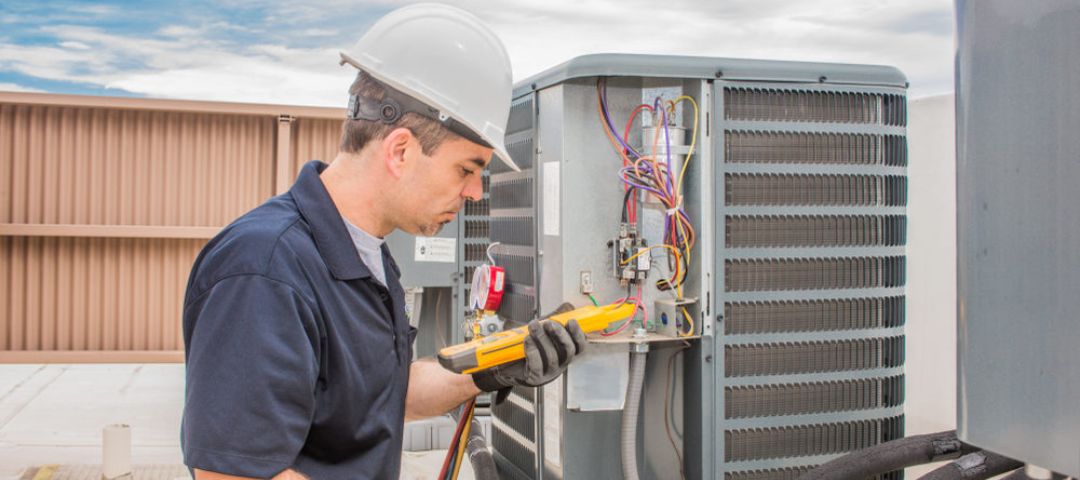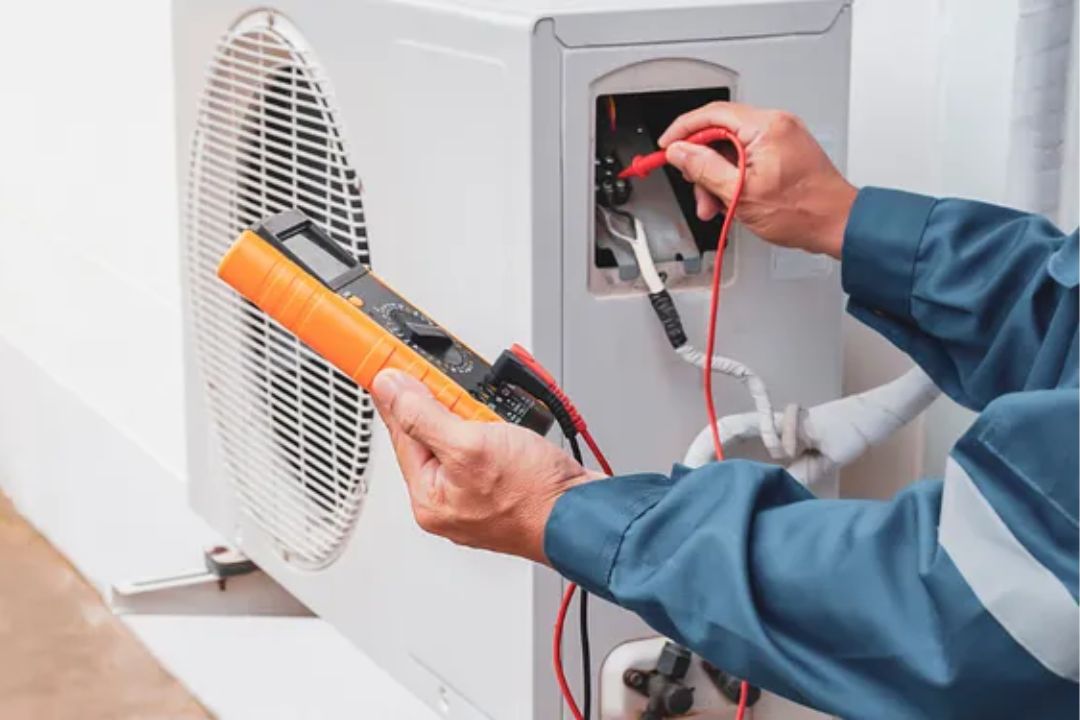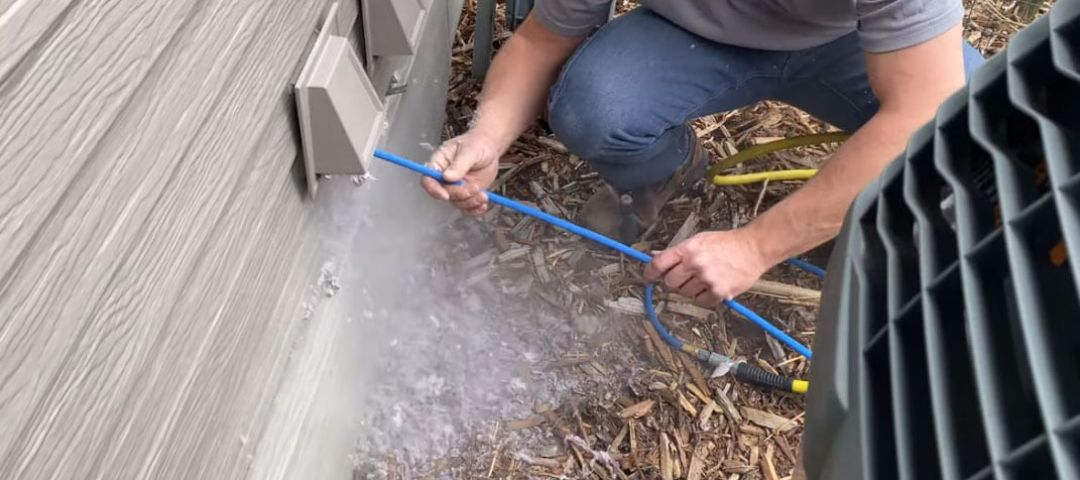
The Connection Between HVAC Cleaning and Energy Efficiency
Efficiently working HVAC systems do not just maintain comfortable indoor temperatures, but this efficiency also makes an impact on energy bills, indoor air quality, humidity levels, and other factors. If regulator maintenance and cleaning are not considered pivotal, this efficiency starts declining, making it hard for the system to function. As a matter of fact, The U.S. Department of Energy says these systems comprise about 40% of all energy used in commercial buildings. And with the presence of dust, debris, mold, and other pollutants in the ducts, these bills will start elevating even higher as the system struggles to perform.
Routine HVAC maintenance and cleaning is the needed solution to improved energy efficiency and decreased costs by improving airflow, enhancing fan function, and supporting better heat transfer.
We have got you a guide to explore the HVAC cleaning process and learn why consistent maintenance is key to optimal efficiency.
What is HVAC Unit Cleaning?
Constant usage throughout the year fills the duct with contaminants, lowering its functional abilities. The HVAC unit cleaning process includes cleaning various components of the HVAC unit, such as the coils, filters, ducts, and other parts. The goal is to remove dust, debris, mold, and other contaminants that can accumulate over time, hindering the system’s efficiency and affecting energy consumption and indoor air quality.
How do Dirt and Debris Affect Your HVAC Efficiency?
An accumulation of dust and debris within your HVAC system can cause a major reduction in its efficiency. These particles have the potential to block the unit, making it work harder to keep the temperature at the desired level. This added stress not only results in increased energy use but also in higher utility costs.
Aside from being inefficient, dust and debris cause havoc on the individual components of your HVAC system. When these particles settle on components such as condenser coils or air filters, they can cause these components to malfunction, resulting in frequent and costly repairs. Even worse, dust and debris buildup shortens your HVAC system’s lifespan, necessitating an earlier replacement.
HVAC System Cleaning Process
- Residential and commercial HVAC unit cleaning service involves inspecting the air ducts closely to evaluate the dirt stuck inside. Technicians often use a special camera and mirror to check.
- Once the technicians figure out what needs to be done, they will attach a big 8-inch vacuum line to the duct near the furnace. This helps suck out all the dirt and dust from the ducts.
- Cover up the supply and return vents with caps. This creates a strong suction in one specific area, helping to clean out the ducts more effectively. It will be set to negative pressure on the truck-mounted vacuum system so that the cleaning can begin.
- The technicians use strong compressed air at 250 psi and tools like cleaning rods, air whips, brushes, and skipper balls. These tools go into the main holes of the ducts. The powerful air pressure blows away all the stuck dust, dirt, and debris, sending it toward the vacuum for removal. They keep doing this cleaning process until all the air ducts are completely clean. Once that’s done, they repeat the whole thing on the return vents.
- It’s also necessary to clean the air filters, plenum, furnace compartments, motor, and fan. If the old one is already worn out, a new air filter is installed.
6. After thoroughly cleaning the HVAC system, re-inspection to assess its operational efficiency. You have to do it to ensure that the system meets cleanliness standards and functions optimally. Verify that all components are in proper working order and assess the performance to guarantee an effective and efficient HVAC system post-cleaning.

Benefits of Regular HVAC Cleaning Services
1. Better Indoor Air Quality
According to the Environmental Protection Agency, the air inside most buildings can be up to five times more polluted than the air outdoors. This air degradation occurs even though you make a huge effort to clean and vacuum regularly.
Numerous everyday household products that people commonly use contain harmful volatile organic compounds and chemical residues, which can adversely affect indoor air quality. These compounds often become airborne, finding their way into your ductwork. Once inside, these potentially harmful substances circulate throughout your home as your HVAC system continuously recirculates the indoor air.
To improve the air quality in your home, consider air duct and dryer vent cleaning services. This ensures that when your HVAC system starts, it doesn’t distribute harmful chemical residues and compounds that could impact your health.
2. Reduce Indoor Allergens
Dirty HVAC systems can turn your home into an allergy battleground. Regular cleaning sweeps away dust, mold, bacteria, viruses, and allergens, ensuring cleaner, healthier air. Keep your vents clear, and watch indoor allergens take a backseat, leaving you with a breath of fresh, allergen-free air.
Regular HVAC unit cleaning, typically recommended every two years for the average home, significantly decreases debris buildup within your ductwork. This reduces the circulation of allergens into your living spaces, contributing to a more enjoyable and improved breathing experience inside your home.
3. Create Cleaner Living Areas
If your ducts are dirty, and you use your HVAC system daily, you likely struggle with a persistent dust issue in your living areas. Despite your regular dusting efforts, the dust seems to settle continuously, doesn’t it?
Regular duct cleaning can be the solution!
When you opt for HVAC unit cleaning services, your system will release significantly less dust and other particles into your living spaces. The result is a more sanitary and cleaner home.
4. Eliminate Unpleasant Odors
Do you know that weird smell sometimes? It could be coming from your HVAC system. When it gets dirty, mold can make your home not-so-pleasant. Cleaning stops mold from hanging around in your system. That means the air in your home stays fresh and clean. Regular duct cleaning stands out as one of the most effective ways to address and eliminate this issue.
5. Improve HVAC Efficiency and Reduce Energy Bills
Dirty ducts mean dirty registers, hindering efficient airflow in your home. On the other hand, a clean system guarantees optimal airflow efficiency, potentially reducing your monthly energy bills.
For the most significant enhancement in HVAC efficiency, remove the burden of mold, dust, debris, and other contaminants in your system and let it work smoothly.
6. Extend Filter Lifespan
The typical HVAC system lasts for fifteen years or less. However, poorly maintained or dirty systems may encounter a significant decrease in their lifespan, making them last only for about five years. Not only will routine cleaning keep your furnace and air conditioner operating at peak efficiency, but they will also have greater endurance in carrying their fair share of the load.
Conclusion
By dealing with dust and dirt promptly, you can extend the lifespan of your HVAC system, avoiding costly repairs in the long run. Get professional HVAC cleaning services from Safe House Air Duct Cleaning company in Maryland to ensure your investment continues to provide consistent comfort.

